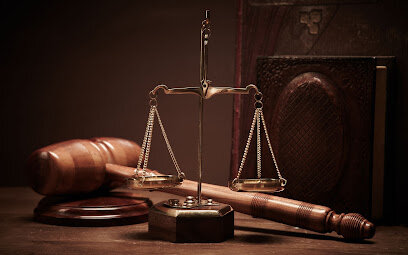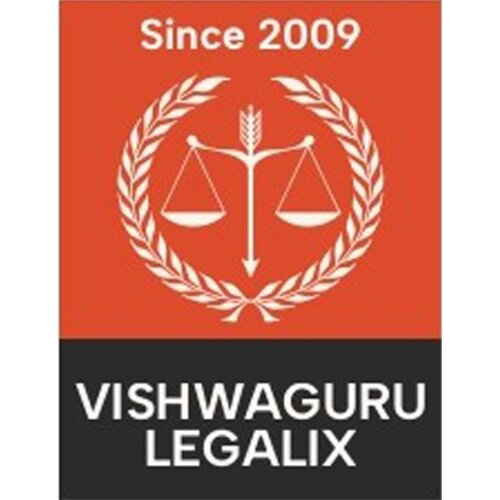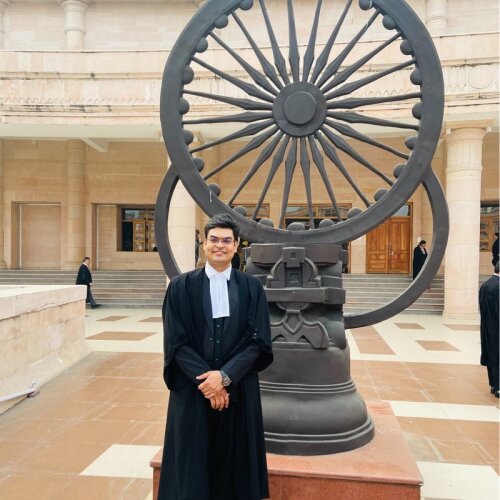Best Constitutional Law Lawyers in Lucknow
Share your needs with us, get contacted by law firms.
Free. Takes 2 min.
List of the best lawyers in Lucknow, India
About Constitutional Law in Lucknow, India
Constitutional Law in Lucknow, as in other parts of India, is governed by the Indian Constitution, which is the supreme law of the country. The Constitution of India lays down the framework defining fundamental political principles, establishes the structure, procedures, powers, and duties of government institutions, and sets out fundamental rights, directive principles, and the duties of citizens. Lucknow, as the capital city of Uttar Pradesh, hosts numerous high court lawyers and legal experts specializing in Constitutional Law, making it a hub for Constitutional legal practice in the region.
Why You May Need a Lawyer
Engaging a lawyer specializing in Constitutional Law may be necessary for a variety of reasons, such as:
- Challenging the constitutionality of a legislative or executive decision.
- Filing petitions related to the violation of fundamental rights.
- Representation in public interest litigation (PIL) cases.
- Understanding and navigating complex legal issues related to the organization and powers of different government branches.
- Legal assistance in electoral disputes and other matters related to state functioning as per constitutional mandates.
Local Laws Overview
In Lucknow, the implementation of Constitutional Law is impacted by both national-level legal precedents and local governance practices. Key aspects of Constitutional Law relevant to the area include:
- Fundamental Rights: Protection against state actions that infringe upon individual rights guaranteed by the Constitution.
- Directive Principles of State Policy: Though non-justiciable, these principles guide state policy-making.
- Judiciary Procedures: Lucknow houses the Lucknow bench of the Allahabad High Court, which deals with constitutional matters originating in this region.
- Public Order, Police and Public Health: As these fall under the state list, local issues can be influenced by how Uttar Pradesh laws are aligned with constitutional provisions.
Frequently Asked Questions
What rights are protected under the Indian Constitution?
The Indian Constitution protects fundamental rights, including the right to equality, freedom, protection against discrimination, cultural and educational rights, and the right to constitutional remedies. Each of these rights ensures a specific set of individual freedoms guaranteed by the law.
How can I challenge a law that I believe is unconstitutional?
To challenge a law, you can file a writ petition in the High Court or the Supreme Court. Engaging with a constitutional lawyer will help in drafting the petition, citing relevant legal precedents, and representing the case effectively in court.
What is Public Interest Litigation (PIL)?
PIL is a mechanism that allows the public to seek judicial remedy on issues that affect the public interest. It's a tool to promote justice where the rights of individuals or groups are infringed upon.
What should I do if my fundamental rights are violated?
You should approach a constitutional lawyer to discuss filing a writ petition in the High Court or Supreme Court of India, depending on the nature and scope of the violation.
What role does the High Court play in Constitutional Law in Lucknow?
The Lucknow Bench of the Allahabad High Court handles constitutional matters within its jurisdiction, providing a local avenue for addressing such legal issues and upholding the rule of law in Uttar Pradesh.
Who can file a writ petition?
Any individual whose rights are affected or who has a standing can file a writ petition. In certain types of writs like habeas corpus, petitions can be filed on behalf of the detained person as well.
Can a state law violate the Indian Constitution?
No. State laws must not violate constitutional provisions and are subject to judicial review. If any state law contravenes the Constitution, it can be struck down by the judiciary.
What is the process for amending the Constitution?
The Constitution can be amended through the Amendment Procedure outlined in Article 368, which demands the initiation by either house of Parliament with a two-thirds majority and, in some cases, the ratification by at least half of the state legislatures.
How is the separation of powers maintained in India?
The separation of powers is maintained through the distinct functions and responsibilities assigned to the three branches of government-executive, legislature, and judiciary-as defined in the Constitution to ensure a system of checks and balances.
What is the significance of the Preamble in Constitutional Law?
The Preamble reflects the core values and principles of the Constitution, such as justice, liberty, equality, and fraternity, and serves as a guideline for interpreting the provisions within the Constitution.
Additional Resources
For those seeking further information or assistance, consider the following resources:
- Allahabad High Court - Lucknow Bench: Key contact point for filing petitions and seeking legal recourse.
- Uttar Pradesh Bar Council: Offers legal resources and lists of practicing constitutional lawyers.
- Legal Aid Services: Government-supported services available for those needing assistance but lack financial means.
- National Human Rights Commission: A statutory body that can be approached for rights violations and related advice.
Next Steps
If you require legal assistance in Constitutional Law, consider the following steps:
- Identify and consult a specialized constitutional lawyer in Lucknow who has pertinent experience in handling cases similar to yours.
- Gather all relevant documents and information needed for the initial consultation to provide a comprehensive overview of your issue.
- Explore alternative dispute resolutions, if viable, before proceeding directly to litigation.
- Should you qualify for legal aid, contact the local legal aid society for support.
- File your petition or legal motion with the appropriate court, under the guidance of your lawyer.
Remember, understanding your rights and legal avenues is key to effectively navigating Constitutional Law in Lucknow.
Lawzana helps you find the best lawyers and law firms in Lucknow through a curated and pre-screened list of qualified legal professionals. Our platform offers rankings and detailed profiles of attorneys and law firms, allowing you to compare based on practice areas, including Constitutional Law, experience, and client feedback.
Each profile includes a description of the firm's areas of practice, client reviews, team members and partners, year of establishment, spoken languages, office locations, contact information, social media presence, and any published articles or resources. Most firms on our platform speak English and are experienced in both local and international legal matters.
Get a quote from top-rated law firms in Lucknow, India — quickly, securely, and without unnecessary hassle.
Disclaimer:
The information provided on this page is for general informational purposes only and does not constitute legal advice. While we strive to ensure the accuracy and relevance of the content, legal information may change over time, and interpretations of the law can vary. You should always consult with a qualified legal professional for advice specific to your situation.
We disclaim all liability for actions taken or not taken based on the content of this page. If you believe any information is incorrect or outdated, please contact us, and we will review and update it where appropriate.















